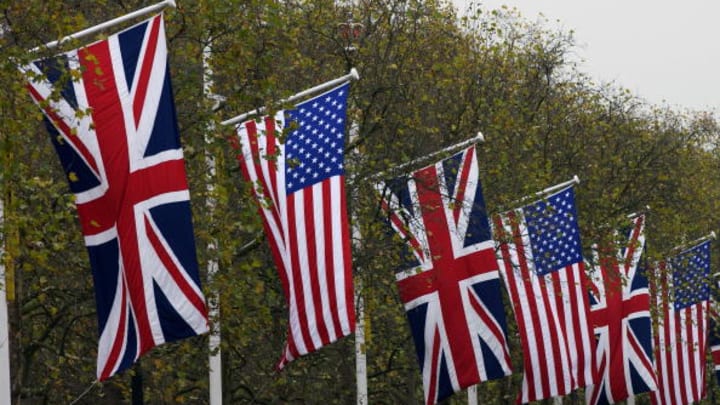Last week, in a carefully choreographed video link-up, President Jo Biden, Prime Minister Boris Johnson and Prime Minister Scott Morrison announced that the US and the UK will help Australia to build nuclear-powered submarines as part of a strategic alliance created in the face of an increasingly provocative China. From the UK’s perspective, the alliance, to be known as ‘AUKUS’ is aimed at bolstering the government’s Integrated Review commitment to strengthen alliances with like-minded allies and deepen ties in the Indo-Pacific. However, almost immediately, the new partnership has run into difficulties, prompting the question: is AUKUS good statecraft or a strategic blunder?
What is AUKUS?
AUKUS is an enhanced trilateral security partnership, under which the US, UK and Australia will strengthen their collective ability to ensure their security and defence interests. It is designed to enhance the development of joint capabilities and technology sharing, as well as fostering deeper integration of security and defence-related science, technology, industrial bases, and supply chains.
The first initiative under AUKUS is collaboration on future nuclear-powered submarines for the Royal Australian Navy. These will be nuclear-powered submarines, but they will not carry nuclear weapons. Priority of effort will be an 18-month programme of work to identify the optimum way to deliver this new capability.
The alliance will also promote a significant increase in other aspects of Australia-UK-US defence collaboration, with early focus on artificial intelligence, cyber capabilities, quantum computing, and additional undersea capabilities. It is anticipated that this could create hundreds of additional highly skilled scientific and engineering roles across the UK, and secure further investment in some of our most high-tech sectors.
Regional Reactions
Regional reactions have been mixed. Unsurprisingly, China immediately condemned the move. In a news conference its Foreign Ministry spokesman Zhao Lijian said the nuclear-powered submarine cooperation ‘has seriously undermined regional peace and stability, intensified the arms race and undermined international non-proliferation efforts.’ Elsewhere, the Japanese Foreign Affairs Minister, Toshimitsu Motegi, welcomed the establishment of the framework, while Indonesia said it was cautiously watching the decision and expressed concern about a regional arms race. After a call from his Australian counterpart, the Singapore prime minister Lee Hsein Loong hoped that AUKUS would constructively contribute to the peace and stability of the region and complement the regional architecture.
Concerns closer to Home
Closer to home, the biggest condemnation of the alliance came from France. Australia had agreed a multi-billion euro contract with France for the supply of a new fleet of diesel-electric submarines. That has now been scrapped. In a radio interview, French foreign minister Jean-Yves Le Drian said ‘It’s really a stab in the back. We built a relationship of trust with Australia. This trust has been betrayed.’ And in a move that confirms the seriousness of the situation, President Macron made the unprecedented decision last Friday to recall the French ambassadors to both the US and Australia. Less than a year away from presidential elections, Macron can ill-afford to look like he has been side-lined by Western leaders whom he considers to be his equals.
There has also been support for the French elsewhere within the EU, with Germany’s ambassador to the UK, Andreas Michaelis, suggesting that the AUKUS partnership threatened the ‘coherence and unity of the West’.
Good Statecraft or Strategic Blunder?
So, is AUKUS good statecraft or a strategic blunder? To quote Zhou Enlai’s apocryphal observation on the impact of the French Revolution, it is probably ‘too early to say’. Moreover, it depends on which end of the telescope you’re viewing it from. As the UK’s new foreign secretary, Liz Truss (Conservative MP for South West Norfolk) confirmed, AUKUS reinforces the government’s Global Britain strategy, under which it sees Britain as a problem solving and burden sharing nation with a global perspective. It also supports the assertion in the 2021 Integrated Review that, by 2030, the UK will be deeply engaged in the Indo-Pacific as the European partner with the broadest, most integrated presence in support of mutually-beneficial trade, shared security and values. Militarily, being able to use Australian Defence Force port facilities in the future to support its own fleet of nuclear submarines will also be a very useful force multiplier.
As onUKDefence suggested immediately after the last US presidential election, President Biden is looking to strengthen international alliances especially to counter what his nation sees as a growing threat from China. The US National Defense strategy recognises long-term strategic competition with China as a principal priority, so any effort to share the burden of countering that is likely to be viewed in Washington as good statecraft.
Australia’s 2020 Defence Strategic Update made clear its three strategic objectives to: Shape Australia’s strategic environment; Deter actions against Australia’s interests; and Respond with credible military force when required. It also recognised that strategic competition between the US and China would be the principal driver of strategic dynamics in the Indo-Pacific. To these ends, it’s not difficult to see why Australia would want to sign up to an alliance that not only facilitates the acquisition of nuclear-powered submarines, but also puts them in the vanguard of development of next generation military technology.
The most obvious concern to all three nations will be the impact of relations with France. In the short term, friendships will be strained, probably severely. The cancellation of this week’s Franco-British defence ministers’ summit is an obvious example. However, Anglo-French political connections will bounce back in time, and, militarily, the two countries armed forces should continue to work together with little additional friction. France’s mistrust of the US will take longer to heal, but then again, the two countries’ relationship has not been close since the Suez Crisis almost 70 years ago! There are few examples of bilateral military arrangements, although both will continue to work together through NATO.
Conclusion
Despite the immediate disquiet, the US UK and Australia will all see AUKUS as a positive step forward in their attempts to counter China’s growing influence in the Indo-Pacific region. While a few feathers have been ruffled closer to home, the UK government will be particularly pleased with such an overt signal that Global Britain is real. As Lord Palmerston said as long ago as 1848: ‘We have no eternal allies, and we have no perpetual enemies. Our interests are eternal and perpetual and those interests it is our duty to follow.’ To that end, when the question is asked ‘Is AUKUS good statecraft or a strategic blunder?’ the answer, at least in Westminster will definitely be the former.






